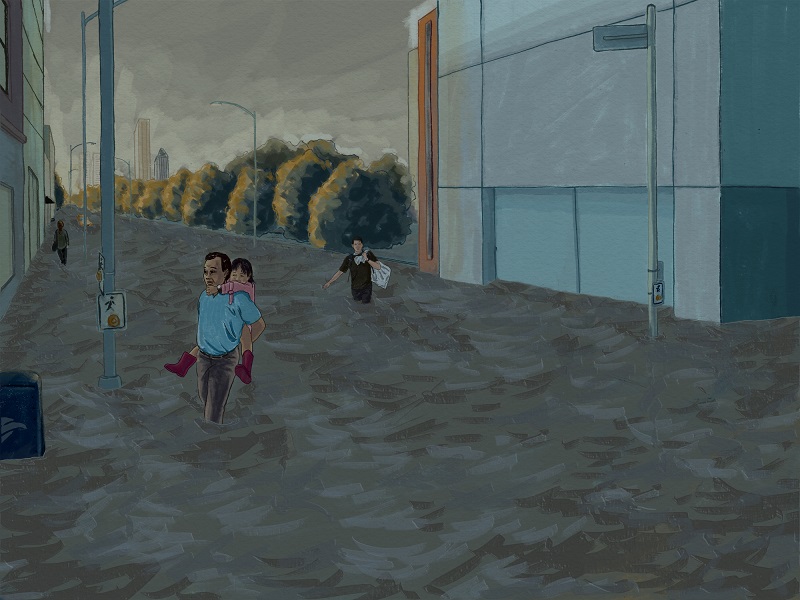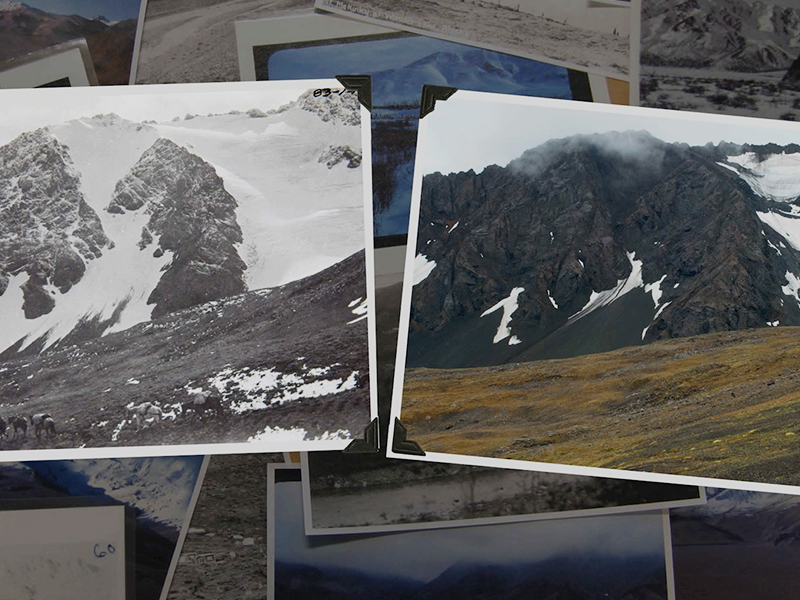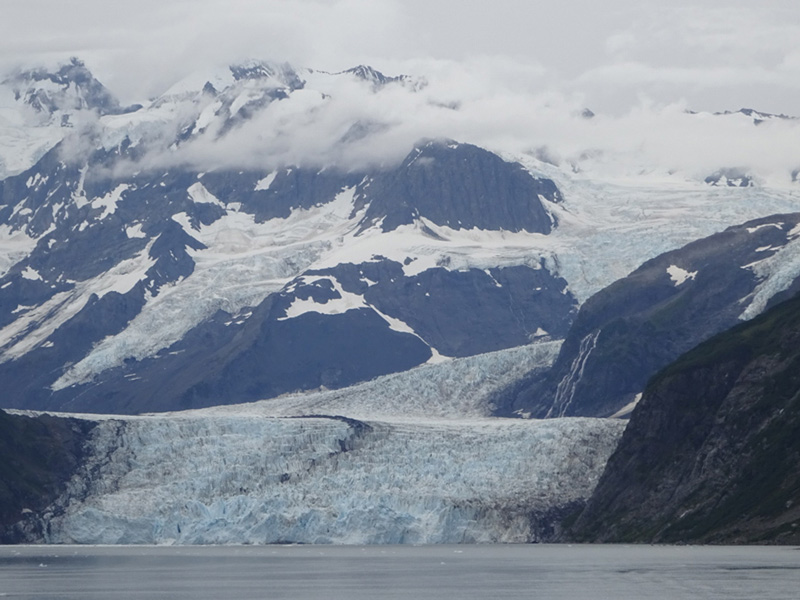Three and a half years ago in Ethiopia I stepped away from the oldest early human fossil site in the world and began walking to South America.
The idea behind this absurdly long foot journey is simple: I’m following the pathways of the first ancestors who walked out of Africa during the Stone Age to explore the Earth. My journey will end at Tierra del Fuego, the last corner of the continents to be colonized by Homo sapiens. I’m using deep history as a mirror to write about the events that I’m witnessing, events like refugee crises, technological disruptions, wars, and cultural destruction.
Even before I began this walk, I always suspected climate change would be an important yet vexing part of my story mix—a vast, diffuse and technical issue that’s hard to humanize. But then I stumbled across the dead in the desert of the small African nation of Djibouti.
There were seven of them. They were men and women who had stripped off their clothes in the final spasm of madness that often accompanies death by thirst. Their underwear, shoes and cheap backpacks lay bleaching across a remote lava field. Jackals had chewed off their hands and feet. I couldn’t hope to know their names, of course, but I could reconstruct their stories. For weeks, I had been interviewing some of the hundreds of undocumented migrants I’d met while crossing the same African badlands en route to the Gulf of Aden: a tide of destitute humanity hoping to reach low-paying jobs in the Middle East. They were Ethiopians, Somalis and Eritreans, mostly. Many were city people. A few were army deserters. But at least half were farmers or herders uprooted by relentless drought cycles.
Research suggests that erratic cycles of drought and rain from human-caused climate change are making life even more tenuous than usual in this already famine-prone part of Africa.
“It is useless to plant,” one middle-aged grain farmer from the highlands of Ethiopia told me while he hid among boulders on the Djibouti coast, waiting for smugglers in small open boats to ferry him illicitly to Yemen. “The rains never come. It is better to die trying to leave than to wait for death at home.”
The party of dead migrants lay only three miles from the sea. Some sprawled on their backs, their gnawed stumps curled by mummification as if trying to clutch the cloudless sky. It has been impossible ever since to think of climate change in the abstract.
I often describe my project, called the ‘Out of Eden Walk,’ as a 21,000-mile-long conversation. On the global walking trail, I meet and talk with total strangers virtually every day. And as I plod across four continents and through dozens of languages, cultures and ethnicities—I’m telling this story from Central Asia—the topic of bizarre weather is virtually inescapable. It forms an anxious background buzz to all the other grievances that I’ve been exposed to during 6,000 miles of trekking—the predictable and fatalistic tirades against corruption, institutionalized violence or frustrated love.
I have slogged through several climate stories since leaving Africa in early 2013.
In the Rift Valley of Ethiopia, enemy pastoralists called the Afar and Issa were killing each other with renewed vigor over access to water and grass, vital commodities that were withering away with the memory of reliable rainfalls. (I was required to walk around the often-invisible front lines of this resource war.)
Stalled for months in the Caucasus, I saw firsthand the ravages of unprecedented floods: An entire neighborhood in Tbilisi, Georgia, slid into a river during a night of lethal rains. (The foreign media focused on a destroyed zoo.)
There were times when changing climate brought a welcome result. I crossed the steppes of western Kazakhstan during a spring when torrential rainfall had turned a semi-desert into a hip-high savanna of green grasses for the first time in living memory. Ninety-year-old nomads couldn’t identify some of the sprouting plant species. They had never seen them before.
Traveling the world on foot, I am moving at three miles per hour through temperatures and precipitation that are often unhinged from all previously known referents. It is a sobering experience, and deeply unsettling. No matter the landscape, there seems to be a shifting in the winds that gives many ordinary people pause. They sigh or nod, kicking the cracked earth at their feet. Or they turn up their collars while contemplating the onset of some strange new season. Out walking, I absorb their uncertainty through my body, my skin.
The calculated denial of climate change in some quarters of the world—places where economics trump science—seems, from my boot-level remove, to be particularly venal. It’s easy to recall John Donne. If the bell of mortality isn’t tolling for us, it’s certainly ringing for our children. And I remind myself that the hapless people I found in a desert of black stones were not killed by climate change. They died trying to run from it.
Paul Salopek is a National Geographic Fellow and a Pulitzer Prize-winning journalist and writer. Read more about the Out of Eden Walk.










 to WBEZ
to WBEZ
